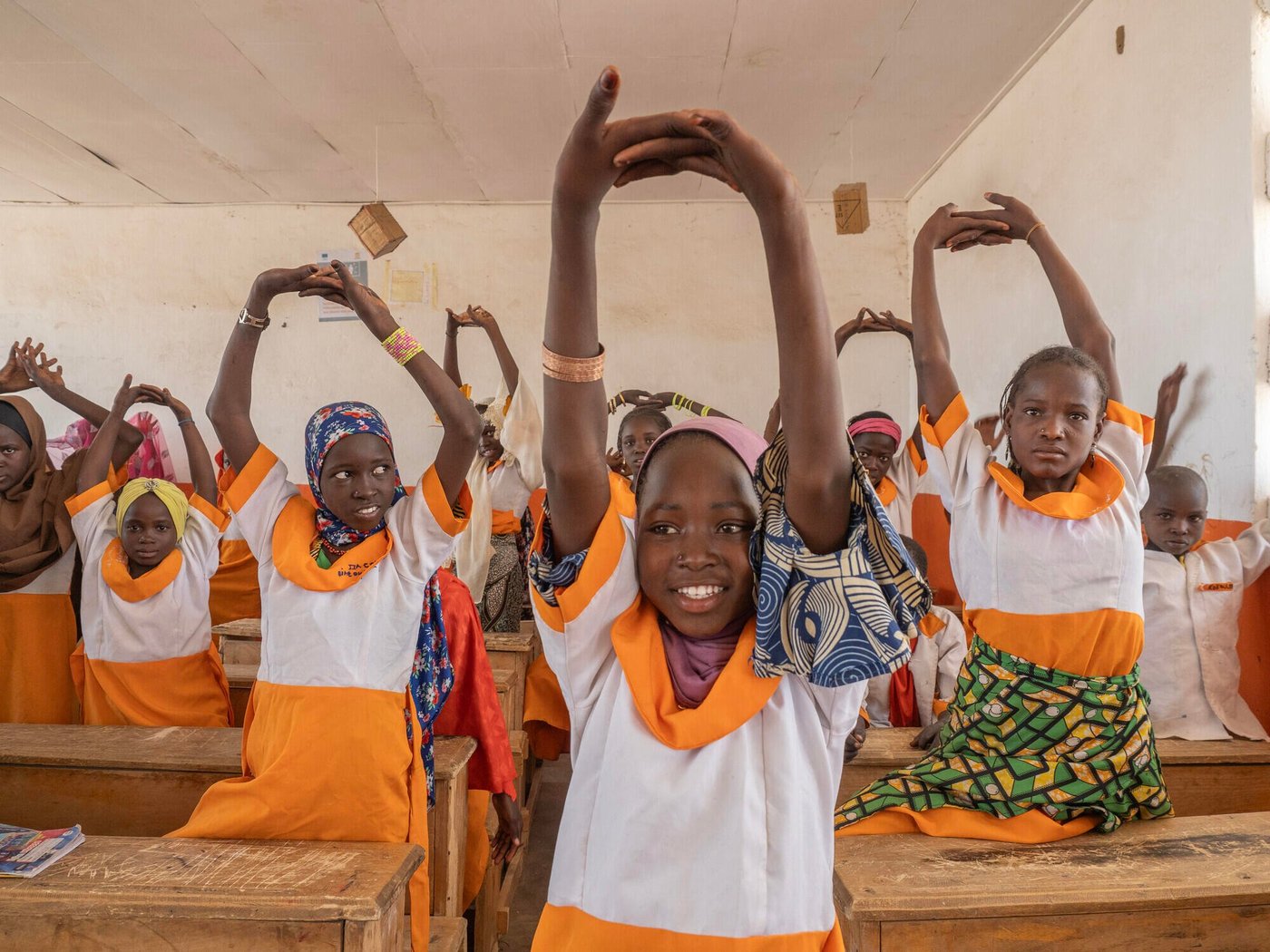Hadja’s dream
The morning sun was Hadja's alarm clock. As the eldest sibling, her routine began long before the school bell. First, the rhythmic creak of the well pump as she hauled water, bucket by bucket. Then, the whisper of the broom across the dirt floor. Her nimble fingers made quick work of scrubbing the family's clothes clean. By the time her chores were done, a quick wash of her own, and into her crisp school outfit – she was ready for her favourite part of the day.
Hadja Matata, 13, lives with her mother, father and two brothers in the village of Igawa Mémé in the Far North region of Cameroon. She was displaced with her family at the age of just four when armed groups attacked their village, killing three people. For years, she never had the chance to go to school. She couldn't read or write, yet she kept a burning desire to go to school and fulfil her dream of becoming a doctor.
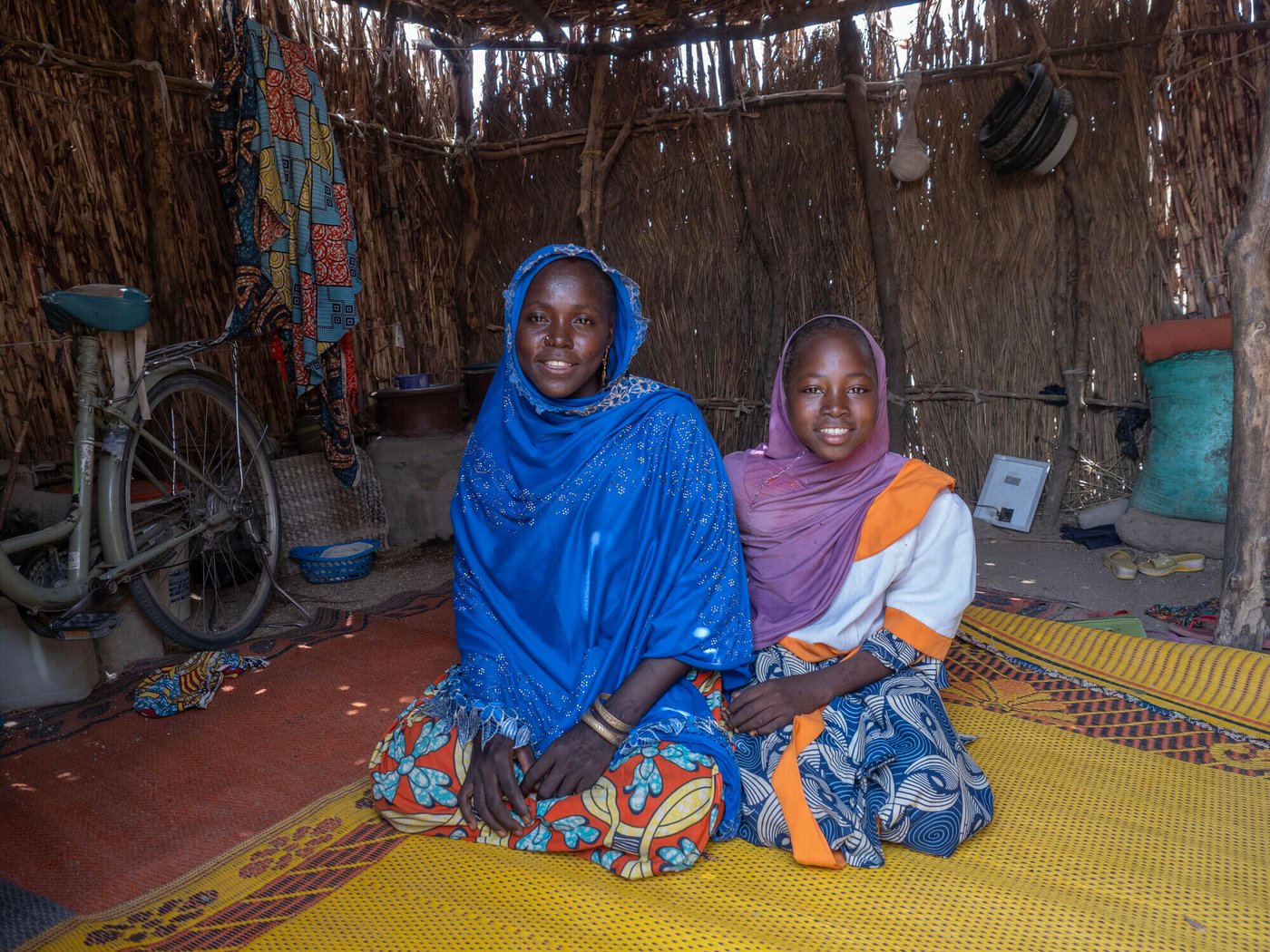
In 2023, her mother discovered the Igawa Mémé Accelerated Education Programme (AEP) and realised that she had to seize this opportunity for her daughter. Hadja is now a student in her second year of study. She is thrilled at the chance to learn.
When I come to school, I feel comfortable and well-treatedHadja Matata, 13
“What I like most is learning and playing,” she says, smiling. “When I come to school, I feel comfortable and well-treated, and I am always happy.”
Hadja was drawn to the programme by the promise of literacy. For Hadja, understanding French wasn't just about communication, it was about freedom. "When you understand the French language, you can go anywhere, you can't get lost. But if you don't understand the language, that means you remain Boutoukou [illiterate]," she says.
Hadja’s days at Igawa Mémé are rich and stimulating. The mornings begin with the diligent practice of writing letters and sounding out words. Reading comes next, opening new worlds with every page. But it’s not all books and lessons. Outside, the air vibrates with the energy of games, Hadja often in the thick of it.
After the final school bell rings, Hadja's day is far from over. She returns home to more chores, fetching water and sweeping, her hands always busy. In the evening, she heads to the Koranic school, eager to absorb the sacred teachings. Hadja's life is a testament to resilience – a blend of responsibility, joy, and a real hunger for learning.
Elie is full of hope
Elie, 14, remembers the events that changed his and his family’s lives when he was just six years old. That night, under cover of darkness, Elie and his family fled their small home in Bourrha, in Cameroon’s Far North region. Their journey was a blur of fear and exhaustion, ending in a place called Kolofata – and a new, uncertain world.
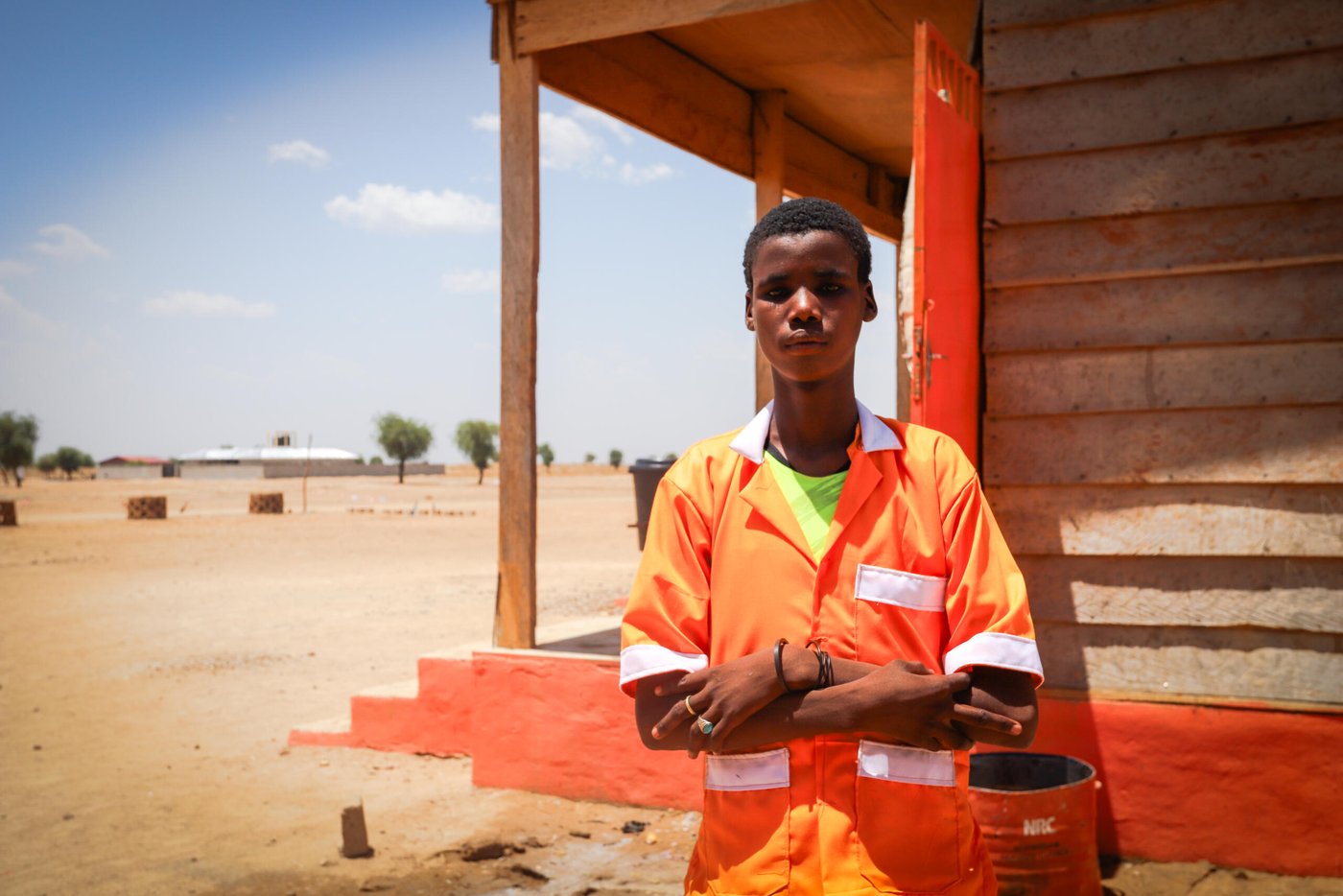
Life in Kolofata was very different. The vibrant rhythm of Elie’s old village was replaced by a quiet, often hungry, existence. School, once a distant possibility, now felt like a forgotten dream.
Elie spent his days glued to his mother's side, watching over his eight younger brothers and sisters. The laughter that used to echo in their home was muted, replaced by gnawing worry. The worst blow came when his father left one day and never came back. The absence left a void that even his mother’s tireless strength couldn’t fill.
I want to go to college and study to become a great engineerElie, 14
Years passed, marked by hardship and resilience. Then, in 2022, a new beacon appeared: the AEP centre in Kolofata. It was a glimmer of hope that reignited a spark within Elie. He devoured every lesson, his mind hungry for knowledge.
Eventually it was time to move on. Elie sat with a quiet determination, his heart pounding. He had just completed the entrance exams for the first year of secondary school. Every question was a step towards the future. He thought of his mother and his siblings. A quiet confidence settled over him: "I'm confident that I'll pass," he told himself.
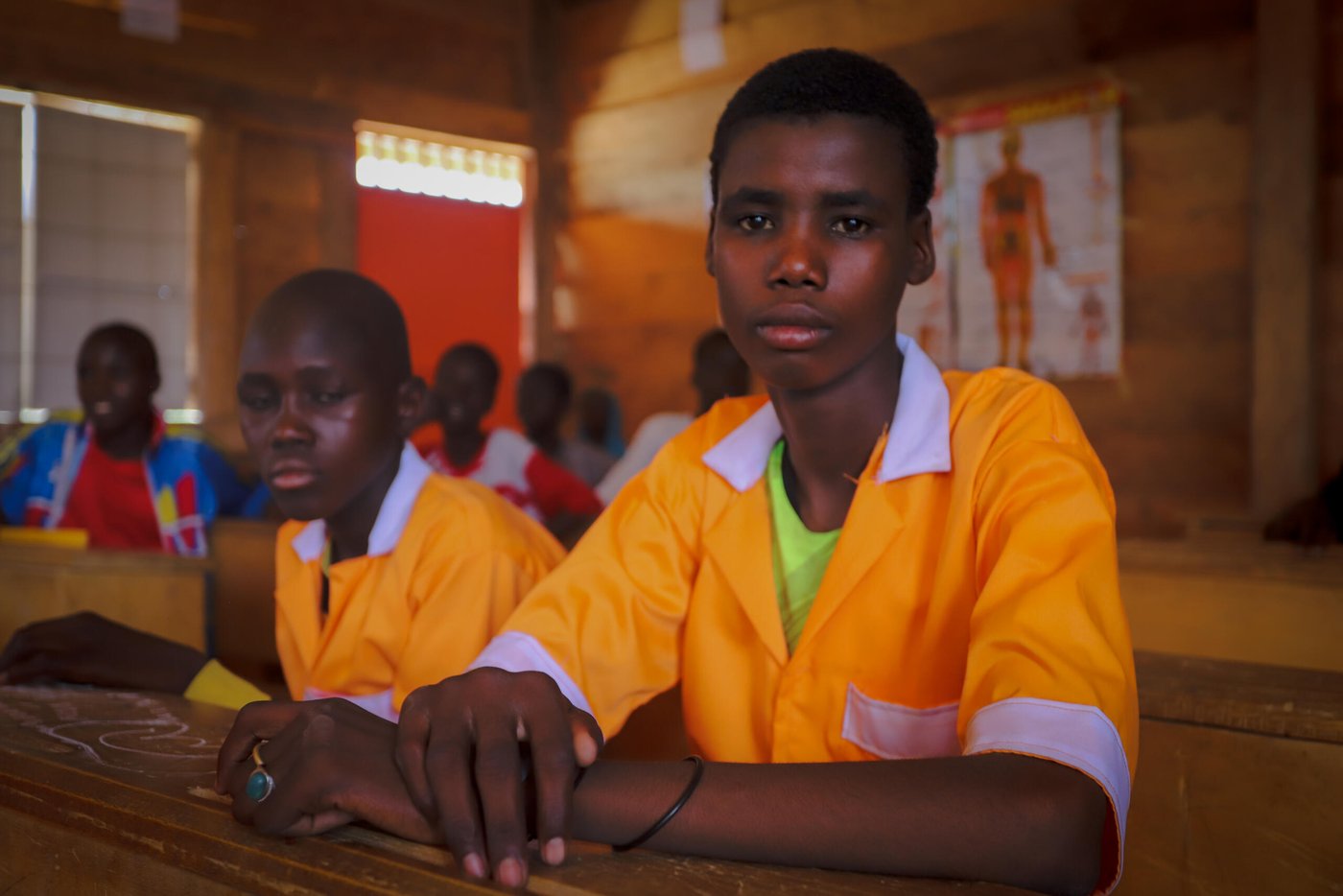
Today, his dream stretches far beyond secondary school: “I see myself in a university classroom. I want to go to college and study to become a great engineer," he says. It is a dream fuelled by the hope of building a better life for himself and his family. For Elie, becoming an engineer isn’t just a career, it’s a way to ensure that no-one in his family will ever have to flee in the night again.
Fadimatou never gave up
Fadimatou, 14, lives in Igawa Mémé town with her father and seven younger siblings. She is a strong, determined young woman who dreams of becoming a top fashion designer one day.
But due to the crisis affecting the Far North region, her dreams were put on hold. Fadimatou was forced to drop out of school when armed groups attacked her family in 2017. Her father took her out of school and introduced her to small business and farm work to help him support the family. She also helped with household chores.
"I never wanted my daughter to drop out of school, but with no money and no work, I had no choice. We had to find a way to survive because you can't study on an empty stomach," says her father.

Unfortunately, her situation is far from unique. In the Logone-et-Chari division where Fadminatou lives, 145 primary schools have been destroyed or temporarily closed because of conflict and insecurity, affecting around 45,000 children. Thousands more children were forced to drop out of school when flooding hit the region in October 2022.
In April 2021, Fadimatou began attending AEP classes and continued for the next two years until she obtained her diploma to access secondary education in 2023.
I hope that other children like me will also have the chance to go to schoolFadimatou, 14
"I started the AEP in year 1 in 2021 with Mrs Fanta, my teacher. I liked her a lot because she really encouraged me not to give up. Sometimes, it was hard. I used to walk over 1km every day to attend school. But I succeeded, along with six of my classmates, four girls and two boys. I hope that other children like me will also have the chance to go to school,” she says.
With support from EU Humanitarian Aid, and in close collaboration with Cameroon’s Ministry of Basic Education, NRC and Plan International have been implementing AEP in the Far North region of Cameroon since 2021. The programme has supported almost 25,000 people across the country, including more than 400 children at the Igawa Mémé AEP centre.

Education at risk in Cameroon
Cameroon faces a complex humanitarian situation, marked by the impact of three major crises in different parts of the country. This situation, made worse by climate shocks and epidemics, has led to massive population displacement, with nearly one million people displaced within Cameroon and half a million refugees and asylum seekers from elsewhere living in the country. Violence, insecurity, human rights violations and the destruction of infrastructure continue to severely affect people’s wellbeing.
The impact on children's access to education is particularly devastating. In 2024, over 625,000 school-aged children were out of school, including nearly 250,000 displaced children in the Far North region. In the Northwest and Southwest regions, where the conflict has deep roots, an alarming proportion of schools – approximately 41 per cent – have been closed or are non-functional.
Educational infrastructures are frequently damaged or destroyed. Teachers face professional challenges and shortages. As a result, children’s learning continuity is severely disrupted. Constant violence, threats to schools and students, kidnappings and forced displacement expose children to risks such as child marriage, criminality, violence, and recruitment into armed groups.
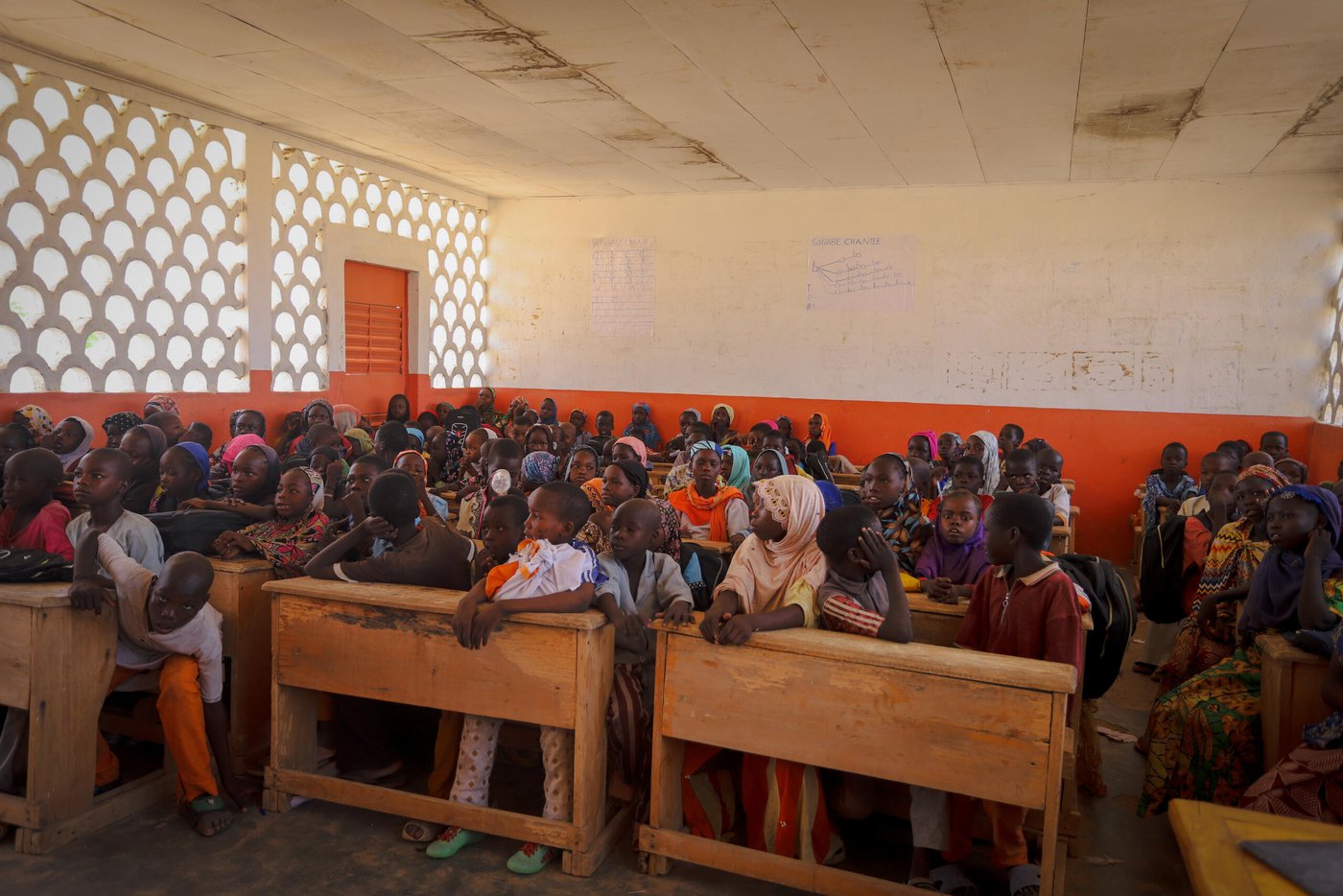
In the Northwest and Southwest regions for instance, classes are frequently cancelled due to insecurity and curfews, even in schools that manage to remain open. This leads to significant learning losses and academic delays of several months, or even years. The situation forces many families to informal learning alternatives for their children.
It’s vital that the humanitarian response is strengthened and support increased to guarantee the right to education for Cameroon’s children.
Sign up to our newsletter to read more stories from around the world.
Cameroon is one of the world’s most neglected displacement crises. It may not make the headlines, but the needs are urgent. Share this story and help shine a light on the world's neglected displacement crises. Your voice matters when others remain silent.


